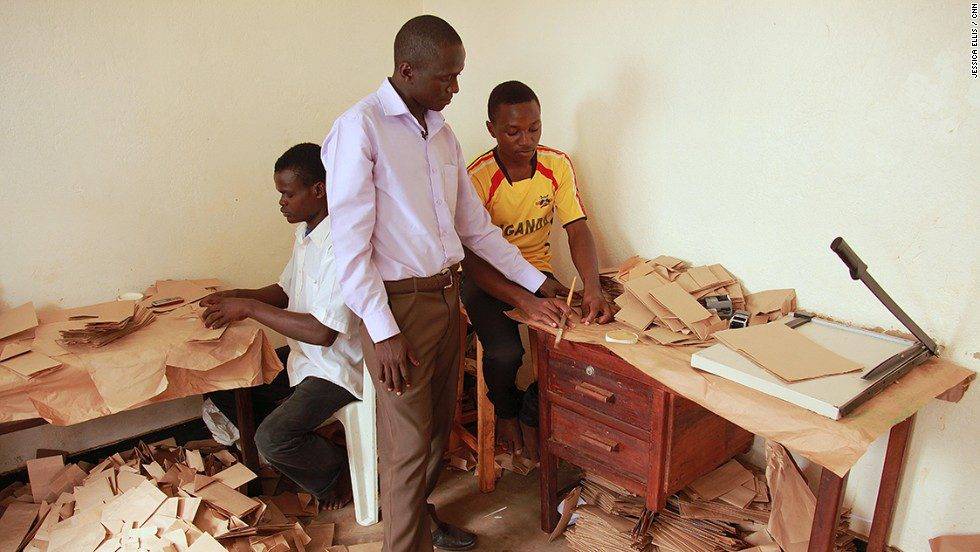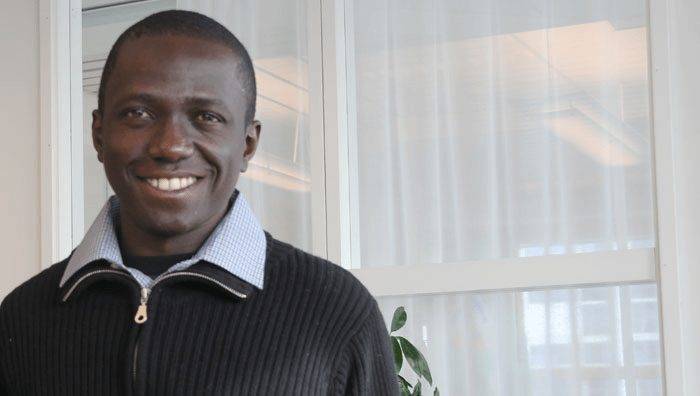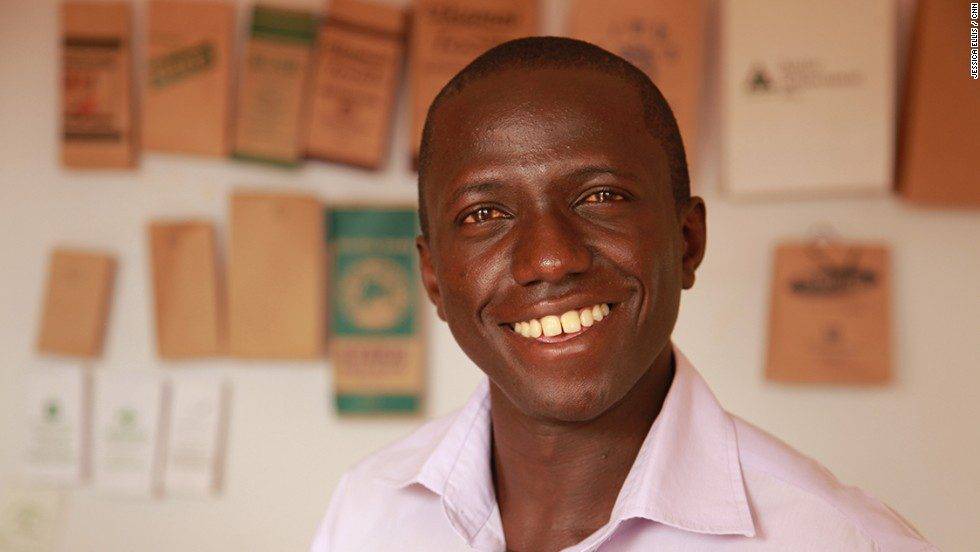An Entrepreneur In Uganda Is ‘Making The Paper’ With Paper – And He Started In High School

“Paper Bag King,” “Paper Bag Emperor” – those aren’t lines from some contemporary hip-hop track by some wannabe rap star. They are monikers for award-winning Ugandan entrepreneur, Andrew Mupuya, who is the founder of Youth Entrepreneurial Link Investments (YELI); which claims to be the first registered paper bag company in Uganda.
YELI manufactures paper bags and envelopes for individuals and organizations. The company’s products can be found in supermarkets, restaurants, and medical centres in Kampala, and at the helm of its affairs is a certain youngster who had the foresight to identify opportunity long before it became evident and the tenacity to take advantage of it too.

Andrew Mupuya was just 16-years-old when he made the decision to take on the world. Both his parents had lost their jobs and things had gone from ‘not so bad’ to ‘much worse.’
This was back in 2008 and at that point, the family was stuck in dire straits. Daily meals could barely be afforded, let alone his school fees and basic needs. And even as a teen, Mupuya felt the sting.
So, he opted to take matters into his hands, if not for anything but to be able to afford his own needs at the very least. How he was going to go about it, though, was anything but clear at that point. And then the opportunity surfaced, even though it didn’t show up in a 6-foot long parcel labelled ‘opportunity’.
When the Ugandan government announced its intention to adopt strict measures in an effort to curb further degradation of the environment by plastics bags, it was greeted with widespread scepticism and uncertainty. And as rumours of an outright ban on the use of plastic bags grew louder, most people were caught up weighing the pros and cons of such a move.
But apparently, Andrew Mupuya wasn’t ‘most people.’ He was already looking forward to life after plastic bags and the more he thought about it, the more it dawned on him that he may have just found an out.
Mupuya was well aware that plastic bags were about to be replaced and there was no better candidate to take its place than its distant cousin, paper bags.
He didn’t know of any paper bag production company in his locale, and as things stood, he was on the cusp of something huge.
So, he swung into action. The Ugandan entrepreneur was a high school student then but he had the presence of mind to do some background checks. Students are not known to be fond of ‘homework,’ but this one went about his with gusto – visiting retail shops, kiosks, and supermarkets around Kampala, in a bid to get a feel of what to expect if he went into paper bag production.
From his findings, it was evident that he was on to something and it was his resolve to follow through with it, even though one very important element still eluded him – capital.

Mupuya figured around USh 36 K (USD 14.00) would be required to launch his small operation, but given the situation of things, that kind of money was nowhere within reach. For several weeks, he sought assistance from various individuals to no avail. The financial challenge almost snuffed the life out of his plans before they even came alive, but in the end, he found a way around it.
All those weeks of talking to people about his plans and getting nothing made Mupuya realize he’d have to find the money himself. And that’s what he did. He learned of a recycling company in Kampala that paid cash for used plastic bottles and decided to explore that front.
By the time he had combed the length and breadth of Kampala, he had gathered around 70 kilograms of used plastic bottles and that fetched him USD 11.00 from the company. But he was still short. Then, a teacher from his school came to his rescue by lending him the rest of the sum. Now, he had the means to start producing paper bags on a small scale.
But not the skill, though. That he had to acquire from a bunch of online videos. Within a few days, he had become fairly good at the craft. In a couple of weeks, he could do it at great speed with his eyes closed.
Since then, the business has only grown. Through YELI, the 27-year-old Ugandan entrepreneur currently employs up to 16 people who produce up to 20,000 paper bags on a weekly. The company’s burgeoning clientele includes restaurants, retail stores, supermarkets, medical centres, and even multinationals. YELI has made over 1,000 niche bags for the local stores of global electronics giant, Samsung.

With the proceeds from the business, Mupuya was able to see himself through Makerere University where he obtained a degree in Commerce. Besides supporting his family by setting up a YELI distribution outlet for his mother in Mbale, Uganda, he has also trained over 500 youths on paper bag production techniques and helped set up a good number of them with similar projects.
Deservedly, those efforts earned him USD 30 K when he won the 2012 Anzisha Prize, at only 20 years of age.
YELI’s operations are run from Kasokoso; a suburb just outside Kampala, and its production process is entirely manual. Even though thousands of bags are turned out daily, Mupuya rues the inability of the business to meet the large volumes of demand.
“It needs time to produce the right quality and quantity to all clients because it’s run manually,” he says. “(It’s) quite hard to catch up with some clients who are used to cheap plastic bags,” adds Mupuya. “My next step is to get a machine because I am only able to supply 5% of the demands I have.”
Procurement of the machines will help cut down on production time and increase volume, as well as help foster his bigger dream of making the continent cleaner by cutting down on the use of plastics.
Although the Ugandan entrepreneur still sources most of his paper from Kenya, he hopes to start using recycled paper for the bulk of his production in the near future.